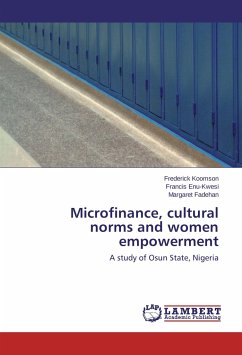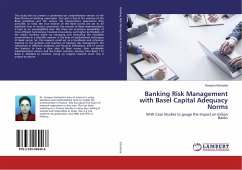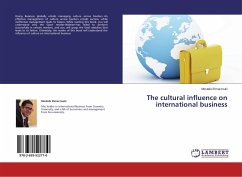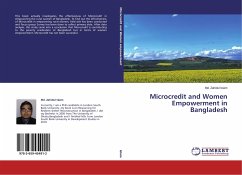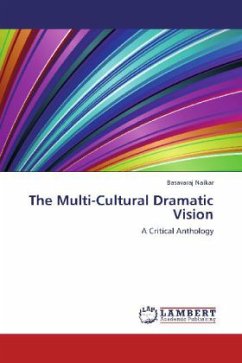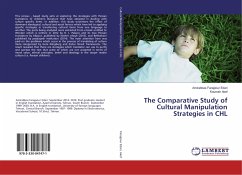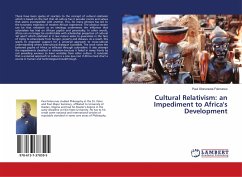Due to the patriarchal nature of Nigerian society, culture can be an impediment to poverty reduction and empowerment for poor women. Therefore, the objective of this book was to assess how microfinance empowers women given the cultural norms in Osun State, Nigeria. The assessment involved an examination of the access of women in the informal sector to microfinance programmes, the patriarchal cultural norms in the state, the effect of microfinance and influence of cultural norms on the empowerment of women. The study found that the women found informal sources of microfinance more accessible. In addition, women who access microfinance exhibit a high level of empowerment in the economic, interpersonal and familial, and psychological dimensions, but carry the greater burden for the welfare of the family. The study results affirm the significant role of microfinance in women empowerment and the need for the strengthening of informal sources of microfinance. It also brings to fore theneed for women groups to advocate for political representation for women, and changes in cultural norms and practices that are inimical to women.
Bitte wählen Sie Ihr Anliegen aus.
Rechnungen
Retourenschein anfordern
Bestellstatus
Storno

